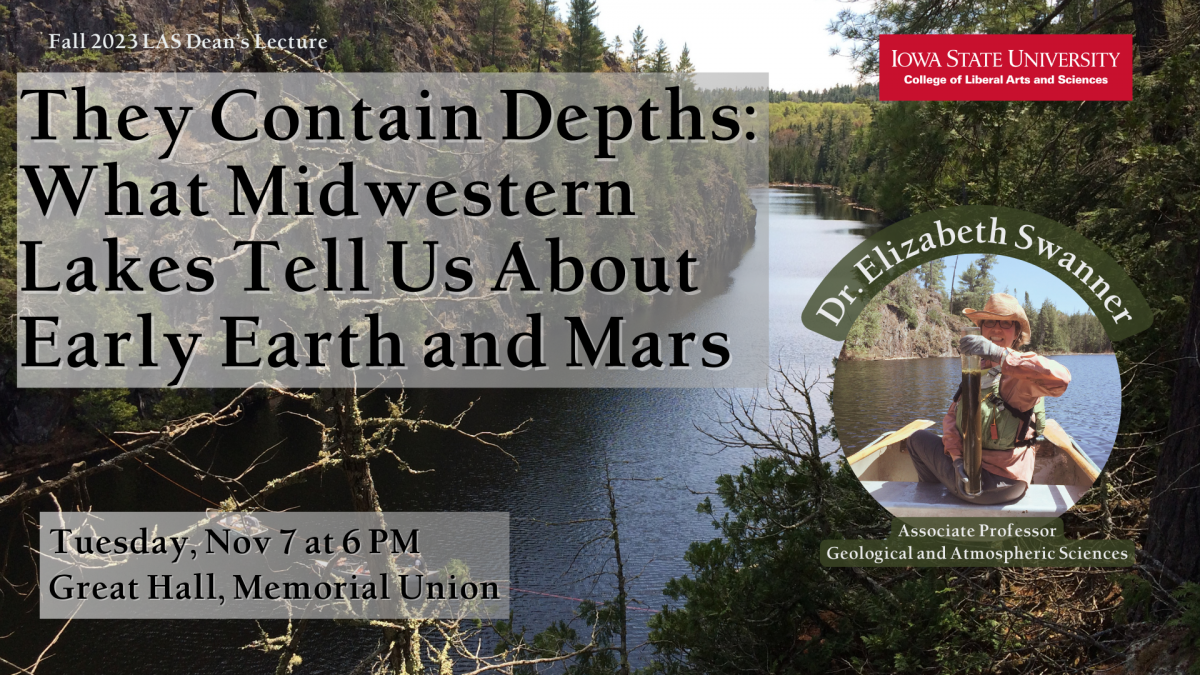They Contain Depths: What Midwestern Lakes Tell Us About Early Earth and Mars
- College of Liberal Arts and Sciences
- Committee on Lectures (funded by Student Government)

To join the livestream of this lecture, click here.
Fall 2023 LAS Dean's Lecture
NASA’s Curiosity and Perseverance rovers are exploring dried lake beds on Mars, remnants of a wetter climate about three billion years ago. Clues about the environments within these ancient lakes lie in the lake sediments left behind. The ancient martian atmosphere contained little to no oxygen, as it does now, and the lake waters were enriched in iron. These conditions are very similar to Earth and its oceans three billion years ago. To be able to interpret the chemical and mineralogical information left in Mars’ Lake sediments and Earth’s Ocean sediments, scientists need to investigate mineral formation in water bodies that have little oxygen and are enriched in iron.
Betsy Swanner's research investigates Midwestern lakes that share common features to ancient martian lakes and Earth’s oceans. She uses a special type of lake that does not undergo seasonal mixing, and always has oxygen-free deep waters. Because there is no oxygen, microbes are the dominant life form. Microbial metabolisms can influence the composition of the minerals that form. Swanner will discuss how some minerals form, and how their presence in ancient Earth sediments or old martian lakebeds can tell us about past microbial life on Earth, or possibly Mars.
Betsy Swanner became interested in microbes during her time as a Biochemistry major at Mount Holyoke College. Despite completing pre-med requirements, she decided her interested lied in microbiology and environmental sciences. After college she worked as a river guide before starting her PhD in Geological Sciences at the University of Colorado, Boulder. As a PhD student, she gained expertise in Geomicrobiology and Aqueous Geochemistry. Betsy came to ISU in 2015 after a postdoc at the University of Tübingen in Germany. She is an Associate Professor in the Department of Geological and Atmospheric Sciences. Her work is currently funded by a National Science Foundation CAREER award, as well as other grants from the NSF and NASA.
This lecture was recorded and can be viewed on the Available Recordings page.